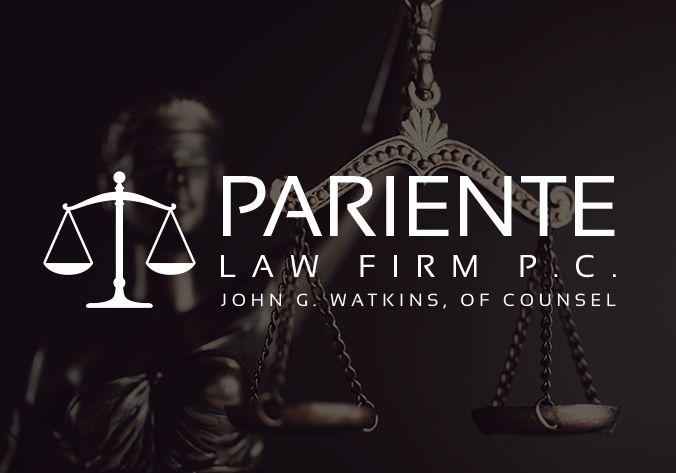The state of Nevada has been significantly affected by the mortgage crisis that has developed over the past several years. This financial instability has resulted in a rise of scams and frauds that are meant solely to take advantage of desperate mortgage holders by professionals that they should be able to trust. These fraudulent plans draw unsuspecting people in by promising programs that will provide relief in the form of preventing foreclosures, removing some of the financial obligations in the terms of an existing mortgage or by modifying existing loans for a fee. We will focus on explaining Mortgage Fraud on this page and what can happen if you are convicted of mortgage fraud.
What is Mortgage Fraud?
 Explaining what constitutes mortgage fraud in a legal sense is a little tricky, as there are actually quite a few different types of mortgage fraud. The general definition of a mortgage fraud is when there is an intention to misrepresent, obscure or omit information on the application for a mortgage loan for the purpose of obtaining a loan at all or to obtain a larger amount on a loan than would have been possible to obtain if the lender or borrower was aware of the truth. These crimes are committed purely for the purpose of financial gain.
Explaining what constitutes mortgage fraud in a legal sense is a little tricky, as there are actually quite a few different types of mortgage fraud. The general definition of a mortgage fraud is when there is an intention to misrepresent, obscure or omit information on the application for a mortgage loan for the purpose of obtaining a loan at all or to obtain a larger amount on a loan than would have been possible to obtain if the lender or borrower was aware of the truth. These crimes are committed purely for the purpose of financial gain.
Common Examples of Mortgage Frauds in Nevada
There are several different ways that mortgage fraud can be committed, but some of the more common methods include:
● Fraudulent inflating of appraisals, illegal property flipping and commercial real estate loans
● Fraudulent modification of existing mortgage loans and equity skimming
● Fraudulent financial information provided to complete a loan application
● Fraudulent foreclosure rescue programs
● Straw buying, procuring of a silent second mortgage and identity theft
Who Can Be Involved in the Perpetration of Mortgage Fraud?
In order to commit mortgage fraud, at least one but sometimes a few or even all of the following participants must be involved:
● Real estate agent
● Appraiser
● Accountants
● Land developers
● Mortgage broker
● Loan officer
● Escrow Agent
● Builders
● Homeowner
● Homebuyer
Anyone that participates in or profits from a fraudulent mortgage scheme can be held legally responsible for their own individual actions in the process – even if there were many people involved. Anyone that was involved in the process without knowledge of the crime being committed will need to be able to prove that they were not aware that it was occurring.
Who is the Victim in a Mortgage Fraud Crime?
White collar crimes are sometimes mistakenly perceived as victimless crimes by the public. In reality, these crimes are harmful to not only to directly affected businesses, but to homeowners, their families and communities, and in a much larger sense, the economy as well. Homeowners who were completely unaware of the fraudulent actions taking place behind the scenes can sometimes end up in dire financial conditions following the transaction, and in some cases can even lose their home.
What is Considered a “White Collar Crime”?
While you’ve almost certainly heard the term “white collar crime”, you may not be familiar with all of the many different crimes that fall under the umbrella of the term. White collar crimes are those that are nonviolent in nature and financially motivated. The term was coined or at least first defined legally in 1939 by the sociologist Edwin Sutherland, who described it as “a crime committed by a person of respectability and high social status in the course of his occupation”. This description still holds true today.
The most common examples of white collar crimes are:
● Fraud (mortgage, corporate, bank, healthcare, etc.)
● Bribery
● Ponzi schemes
● Identity theft
● Money Laundering
● Copyright Infringement
● Forgery
● Insider trading
How Are Mortgage Frauds Reported and Investigated?
If a potentially fraudulent mortgage transaction is recognized by the bank at which it occurred, the bank can file an SAR (Suspicious Activity Report) to local law enforcement. Acting on this suspicion, law enforcement agents have the right to investigate the activity through surreptitious means such as phone taps or agents working undercover.
Penalties for Mortgage Fraud
The conviction of a mortgage fraud in Nevada is a category C felony. The penalty for this is:
● From 1 to 10 years in Nevada State Prison
● Fines of up to $10,000
If the conviction involves more than one fraudulent mortgage lending scheme, it can become a category B felony, for which the penalty is:
● From 3 to 20 years in Nevada State Prison
● Fines of up to $50,000
For either level of conviction, the victim of the fraud will be awarded restitution and there can be a $5,000 civil fine for each individual charge of fraud.
Federal Charges for Mortgage Fraud
Mortgage fraud is often considered a crime on a federal level as well as a state level. At a federal level, the charges that may apply are usually wire fraud, mail fraud or bank fraud. If convicted, these charges have their own penalties:
● Bank Fraud – Up to 30 years in federal prison, a fine of $1,000,000 or some combination of these two penalties.
● Wire Fraud – Up to 20 years in federal prison and fines determined on a case by case basis.
● Mail Fraud – Up to 20 years in federal prison and fines determined on a case by case basis.
Are There Any Ways to Defend a Mortgage Fraud Charge?
Yes, there are. Because the state of Nevada considers mortgage fraud a crime of specific intent, if there is not enough evidence to prove that there was an intention to deliberately commit this type of fraud then there cannot be a conviction.
If you have been charged with a mortgage fraud or other white collar crime, we encourage you to contact us today. The court can be unsympathetic of someone who has allegedly committed this type of fraud, and the sooner you retain experienced legal counsel, the better your chances of having a successful defense can be. We can offer a free evaluation of your case and give you the opportunity to work with an attorney who is experienced in the defense of white collar crimes like mortgage fraud.




